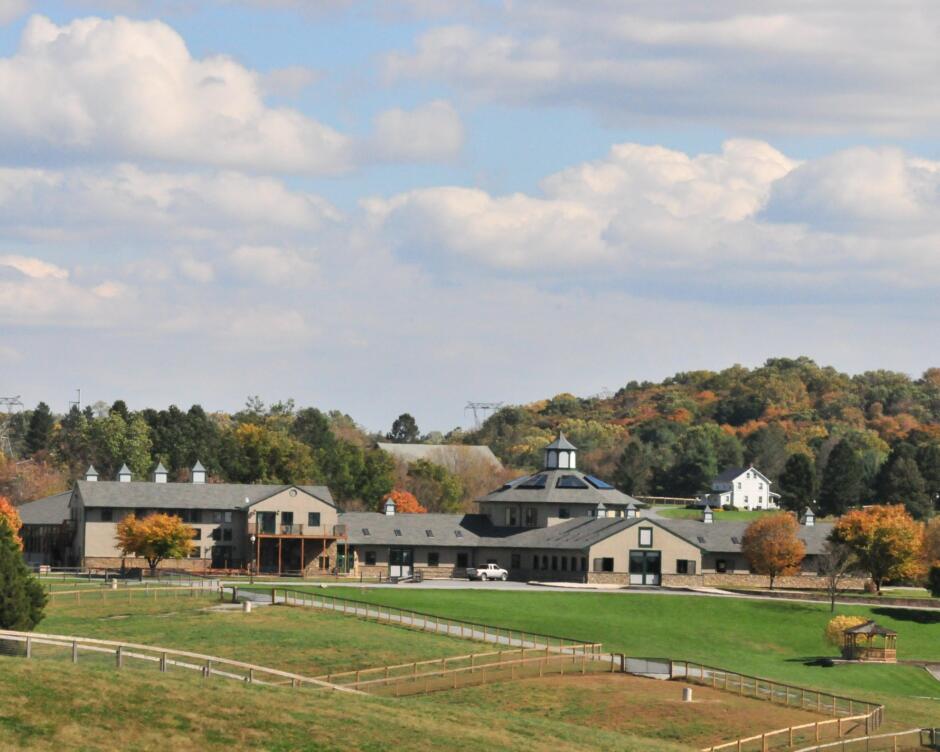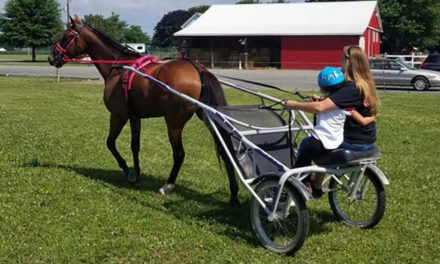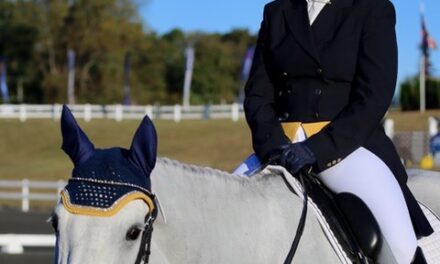by Katherine O. Rizzo (first published in the July 2023 Equiery)
Maryland Horse Council member Hilltop Farm in Cecil County is known for being one of the country’s top warmblood sport horse breeding facilities and training centers. In addition to world class stallions and broodmares, the property also offers beautiful pastures, riding trails and stunning scenic views of the rolling hills of Colora.
Keeping the farm looking picturesque is no small task, but by sticking to a nutrient management plan and implementing several farm stewardship practices, Hilltop not only stays looking beautiful year-round but also remains one of Maryland’s FSCAP certified horse farms.
The FSCAP program, which stands for Farm Stewardship Certification and Assessment Program, is administered by the Maryland Association of Soil Conservation Districts and currently holds 32 horse farms that protect over 3,000 acres of farmland spreading across 11 counties. Hilltop, owned by Jane MacElree and managed by Natalie DiBerardinis, is the largest farm in the program with 425 acres.
MacElree purchased the property in 1989, however the oldest buildings on the farm date back to the late 1700s and early 1800s. The property had previously been used for other agricultural pursuits and a church camp for many years. MacElree started construction on the main training barn soon after purchasing the property and converted many of the camp buildings to other uses such as barns, breeding sheds and equipment out buildings. Hilltop officially opened for business in September 1991.
Select Breeders Services moved their headquarters to Hilltop in 1993, which coincided with the expansion of the breeding services and stallion offerings at Hilltop. It was stallions Riverman and Contucci that firmly established Hilltop as one of the most prominent stallion stations in North America. Since then, the operations at Hilltop have expanded to include not only all aspects of the breeding industry but also training, competitions and educational activities.
“We are a breeding and training facility predominantly for warmbloods and dressage horses but we offer so much more than that,” DiBerardinis stated. In addition to the 12 stallions that live on the property, Hilltop clients have access to 31 stallions from around the world. “We also host educational events such as inspections and the Region One young rider clinic,” DiBerardinis added. Hilltop has also been the location for the East Coast North American Stallion Test since 2107.
The biggest farm stewardship practice that the staff at Hilltop use to keep the property looking tip top has to do with pasture management. “A lot of our conservation efforts start with keeping the number of horses on the property to a manageable level,” DiBerardinis said. “We have over 400 acres and around 82 horses, but we keep our pastures to around 10 to 15 acres each and five to eight horses in each pasture.”
They prefer to keep mares, foals and young stock outside on pasture year-round and thus keeping the number of horses down keeps the pastures growing strong each year. “We also use a rotational grazing model and manage the mowing based on seasons,” she added. “We do tend to reseed the pastures each year and since none of our fields are near the creeks and wetland areas we don’t worry much about soil erosion issues.”
Hilltop also has automatic waterers in the stalls and every field to conserve water and has been switching the various buildings on the property to LED lighting. “There are a lot of buildings on the property so this has been a slow process but we have also been adding systems where lights are on timers to cut down on electrical use,” DiBerardinis explained.
The newest farm stewardship practice that Hilltop has started using are hay baskets for the pastures. “We just went through our third winter using these and they really do cut down not only on labor but also keep the pastures from getting muddy and overused when tossing hay to the horses,” she said.
DiBerardinis and her staff had looked into several hay options, finding faults with many of them.
“These hay baskets are light weight and easy to move and the best thing is we can fill them once a day for all the hay the horses need for the whole day,” she said. Shifting the baskets each day and keeping the hay off the ground not only protects the soil, but also keeps horses happy and healthy.













